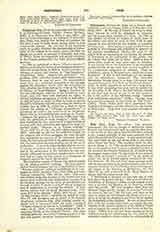

Crevecceur, HECTOR ST. JOHN DE, a French agriculturist, b. at Caen, France, 1731; d. at Sarcelles, near Paris, 1813. At the age of sixteen he went to England, whence in 1754 he emigrated to America, and for many years resided on a farm. In 1780 he was obliged to return to France to settle some of his affairs, and when he went to New York to take passage he was arrested by the English on suspicion of being a spy. After being in confinement for several months he was released and permitted to proceed on his journey unmolested. During his stay in his native land he succeeded in interesting the farmers of Normandy in the cultivation of the potato, and its culture was taken up by them. After a stay of about three years he once more came to America. It was largely due to his description of the wonderful productiveness of the land that several hundred of his countrymen emigrated to America. They established a colony in Pennsylvania, which for a time flourished. It was at last destroyed by the savages and its inhabitants massacred. The American Revolution having come to a close, Crevecceur was appointed consul at New York by the French Government, in which capacity he served for a long term. It was while occupying this post that he assisted in the founding of St. Peter’s, the first Catholic church in the city, and served as one of its first trustees. He is the author of the following works: “Lettres d’un cultivateur americain” (1784); “Voyage dans la haute Pennsylvanie et dans l’etat de New York” (1801). These works have been translated into English and German, and are admired for the beauty of their style. They were very popular throughout France.
THOMAS GAFFNEY TAAFF

